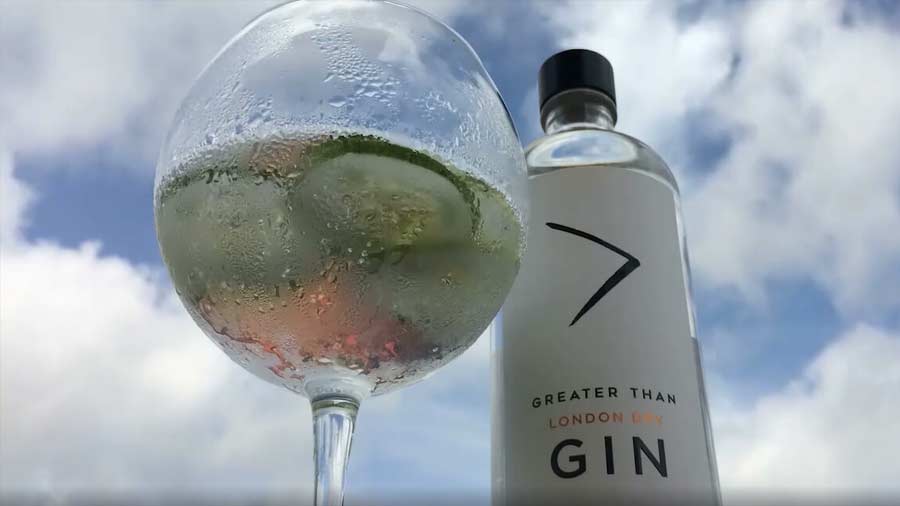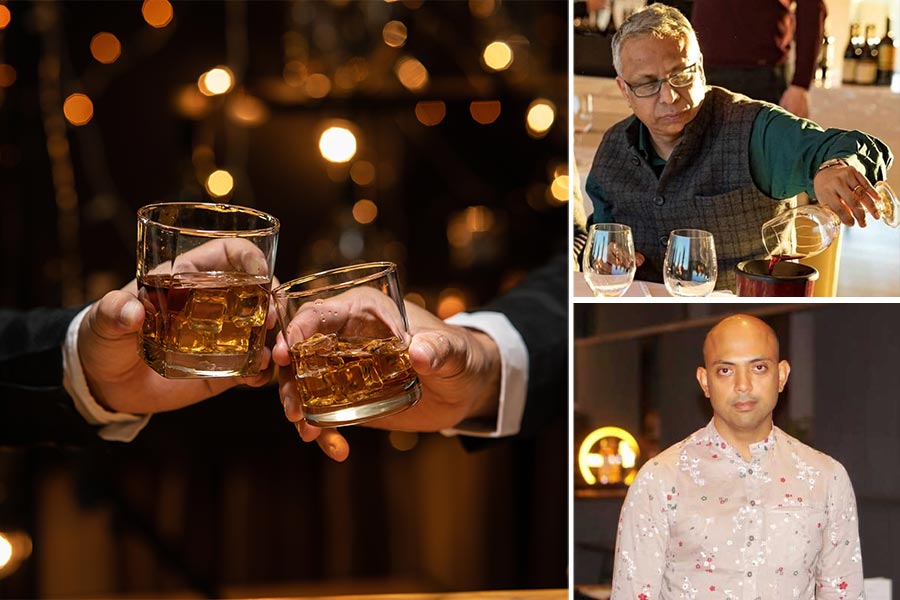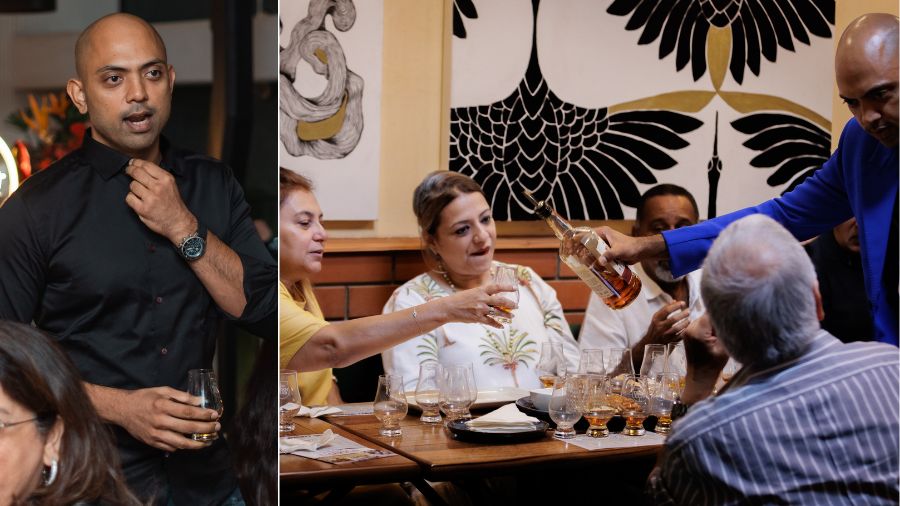Indians drink more than five billion litres of alcohol every year. Poonam Chandel may not be contributing to this tally herself, but few know India’s drinking habits better than her. A veteran of the alco-bev industry with more than two decades of experience, Poonam is presently the managing director of Delhi-based NeuWorld Spirits.
“Drink in moderation and drink to enjoy yourself. Don’t drink to get drunk,” alerts Poonam, who doesn’t see alco-bev as a “glamorous business”. “It’s a lot of hard work and it’s extremely competitive” is how Poonam describes an industry which is estimated to be worth more than $55 billion in India.
My Kolkata caught up with Poonam over video call to dive deeper into drinking trends in India, her journey in the alco-bev industry, her advice for youngsters, and more. Edited excerpts from the conversation follow.
My Kolkata: Before coming to your career, give us a sense of your formative years. Where were you born and brought up?
Poonam Chandel: I was born and brought up in Shimla. I did my schooling, my college and my MBA from there. My father was very keen that I pursue the civil services. But I always wanted to come into the private sector. Although in the ’90s in Shimla, we didn’t really know what the private sector meant. I did my bachelor’s in chemistry before completing my MBA from Himachal University. After I finished my MBA, I got a campus placement with Bennett Coleman.
I worked with the Times of India as part of their brand management for about two years. Coming to Delhi was a very big thing for me. I had never seen a city as big. I’d never seen buses that big or a five-star hotel for that matter. ITC Maurya seemed as big as Shimla! After a couple of years, I wanted to switch to FMCG, which eventually led me to Whyte & Mackay.
But getting into Whyte & Mackay wasn’t straightforward, was it?
Not really! Whyte and Mackay had a joint venture with Radico Khaitan and I came to know that they were looking for people. I told myself that I have to meet the CEO somehow. But every time I’d call him, his secretary would pick up and say: “Sir is busy.” Incidentally, I happened to call his number around 7 one evening. His secretary must have left by then and it was the CEO who picked up. I rattled off my details and he said he would set up a time for a meeting. After that, I knew I had to call him after 7pm to speak to him directly! When we met, I told him that I knew nothing about alcohol, but that I was a quick learner. He asked me to look after institutional sales to begin with. But I told him that if I could meet his yearly target, then I wanted to be moved to marketing. And I was. After meeting the target in three months! That’s how my story with alco-bev began.
‘The alco-bev industry is very welcoming to women’

Women almost match men in alcohol consumption patterns across metro cities in India, according to Poonam TT archives
It’s been quite the journey for you from Radico Khaitan to Shaw Wallace to Cobra Beer to NeuWorld Spirits, to name just a few organisations you have been a part of and led. But how do you see the alco-bev industry in India today? What are its strengths and weaknesses?
I think it’s a very buoyant industry. This is an industry which is recession-free. Because alcohol is always going to be in demand. It’s also an industry that offers you a lot of scope to grow and do well. Also, contrary to what many people think, a lot of women work in alco-bev. It’s an industry that’s very welcoming to women. I joined this industry way back in 2000, and I’ve never ever faced any kind of discrimination [because of my gender]. In terms of consumers, more and more women are consuming alcohol, and the numbers [as compared with men] are quite similar, especially in the metro cities.
In terms of weaknesses, the complex laws that govern the industry can be an issue. Every state in India has their own excise policy, which governs the prices. As a result, you have to treat the Indian market as 28 different countries and keep haggling with different excise commissioners. Plus, there’s bootlegging, smuggling and all kinds of unscrupulous activities. Prohibition of liquor mostly leads to illicit or spurious liquor being sold.
It’s the most dynamic of industries because with so many rules and regulations, you have to be smart and constantly on your feet.
‘Indians are getting out of the “Scotch is the best” mindset’

Indians are gradually moving away from a default preference for imported alcohol TT Archives
In terms of demand for alcohol and emerging markets across India, what are the latest trends and patterns?
I think the demand for alcohol, particularly quality alcohol, is increasing across the board, including in tier two and tier three cities. Thanks to social media, people are finding out more and more about alcohol products. Foreign markets also influence Indians, which means that the demand for premium alcohol is on the rise. The best thing is that Indians are getting out of the “Scotch is the best” mindset. We’re finally learning to respect the fact that an Indian malt can be better than scotch.
You mentioned earlier that more and more women are consuming alcohol in India. But is marketing and branding of alcohol in the country still too male-centric?
We’re trying our best to make things more representative. But mainstream advertisements of alcohol are largely not allowed. So we have to resort to digital channels and social media. In any case, I think most of us understand that alcohol, as a category, is open to all. What happens is that the semi-premium categories are still dominated by men, because they are mostly sold in tier two and tier three cities, where drinking among women isn’t common even today.
Let’s shift gears to NeuWorld Spirits. What are the biggest challenges right now and what are you most proud of?
I started NeuWorld in January 2022. I was the first employee, and it took me three days to decide what the company was going to be called. From there, we now have a team of more than 100 people and have two manufacturing locations (in Punjab and Himachal Pradesh). We have launched three products in the market (including established whiskys such as Downing Street and Royal Tribe) and the fourth is going to hit the shelves very soon. For me, everyday at NeuWorld is like a new challenge, everyday is like a new achievement.
‘If you’re a billionaire who wants to become a millionaire, you should get into the beer business in India!’
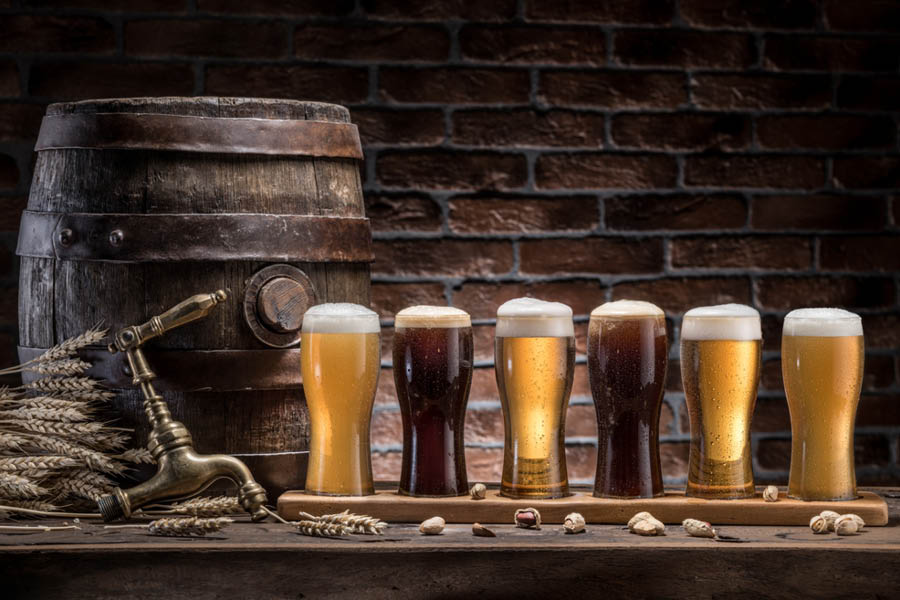
Excise duties mean margins on selling beer in India are extremely low TT archives
Imagine you are in charge of launching three brands from scratch – one each for beer, whisky and vodka. How would you go about it and which one would be the hardest sell in India?
The dynamics of selling all the three are very different. Beer is essentially a distribution-led business. Unfortunately, beer comes under the excise regime, making it very expensive in India. So it’s mostly the strong beer (nine per cent alcoholic beer) that sells. The bulk of the sales, as is the case in Europe, should come from mild beer. But mild beer is exorbitantly priced in India. You can’t expect people to shell out Rs 150 for a can of beer. Ideally, beer should be sold like soft drinks and per capita consumption should be closer to European levels (in excess of 20 litres) as opposed to the current figure in India, which isn’t even two litres.
A lot of the money for beer gets sucked in by the excise duties, and the margins for the manufacturers are extremely thin. This is why most beer companies from abroad fail in India, with the only exception I can think of being United Breweries with Kingfisher. Personally, I feel that if you’re a billionaire who wants to become a millionaire, you should get into the beer business in India!
And what about whisky and vodka?
White spirits are finding a lot of buoyancy in India, but their market share, in terms of the total kitty, is still very small. The growth is on a very small base.
Overall, whisky remains the first choice of drink for Indians, but vodka and tequilas are coming on strong. There are many who are starting off their businesses with small, boutique operations. If you start a boutique company, then vodka, tequila or gin is a good bet. But if you want to have a pan-India presence, then it’s still going to be whisky.
‘Get your hands dirty, work the market’
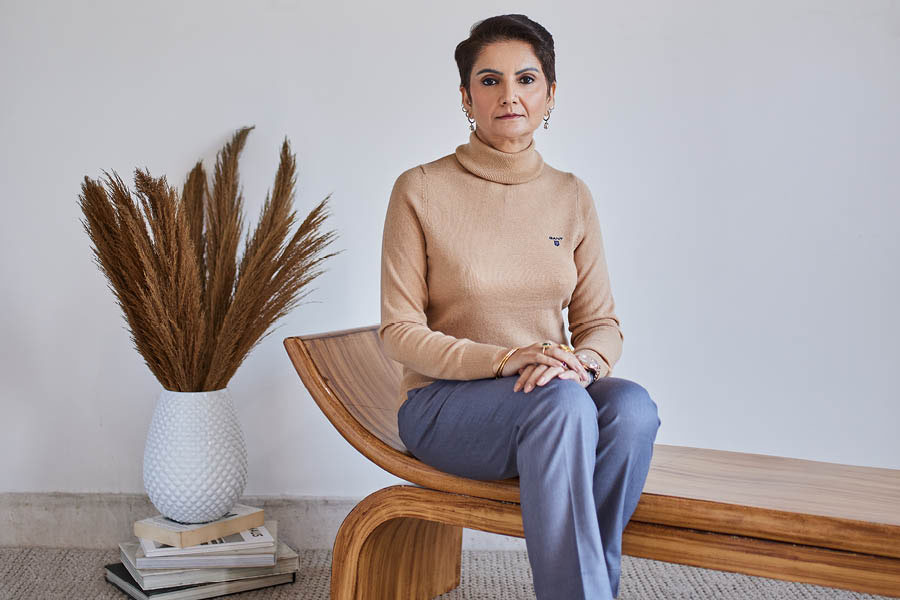
Poonam is a strong advocate for gaining first-hand experience of the market before coming up with a business plan Poonam Chandel/ Sayantan Sinha
Lastly, as a leader in alco-bev, what advice would you give to someone who is just starting off in the industry?
The first thing you have to do here is to get your hands dirty, to work the market. Travel extensively and try to understand everything that’s happening around you. Keep your eyes and ears to the ground. Be a good listener, a good observer. Visit as many outlets as you can, meet as many people as you can — people who are relevant to the business, including distributors and retailers. Once you’ve got your basic learning in place, then build your hypothesis and business plan. And not the other way round.

